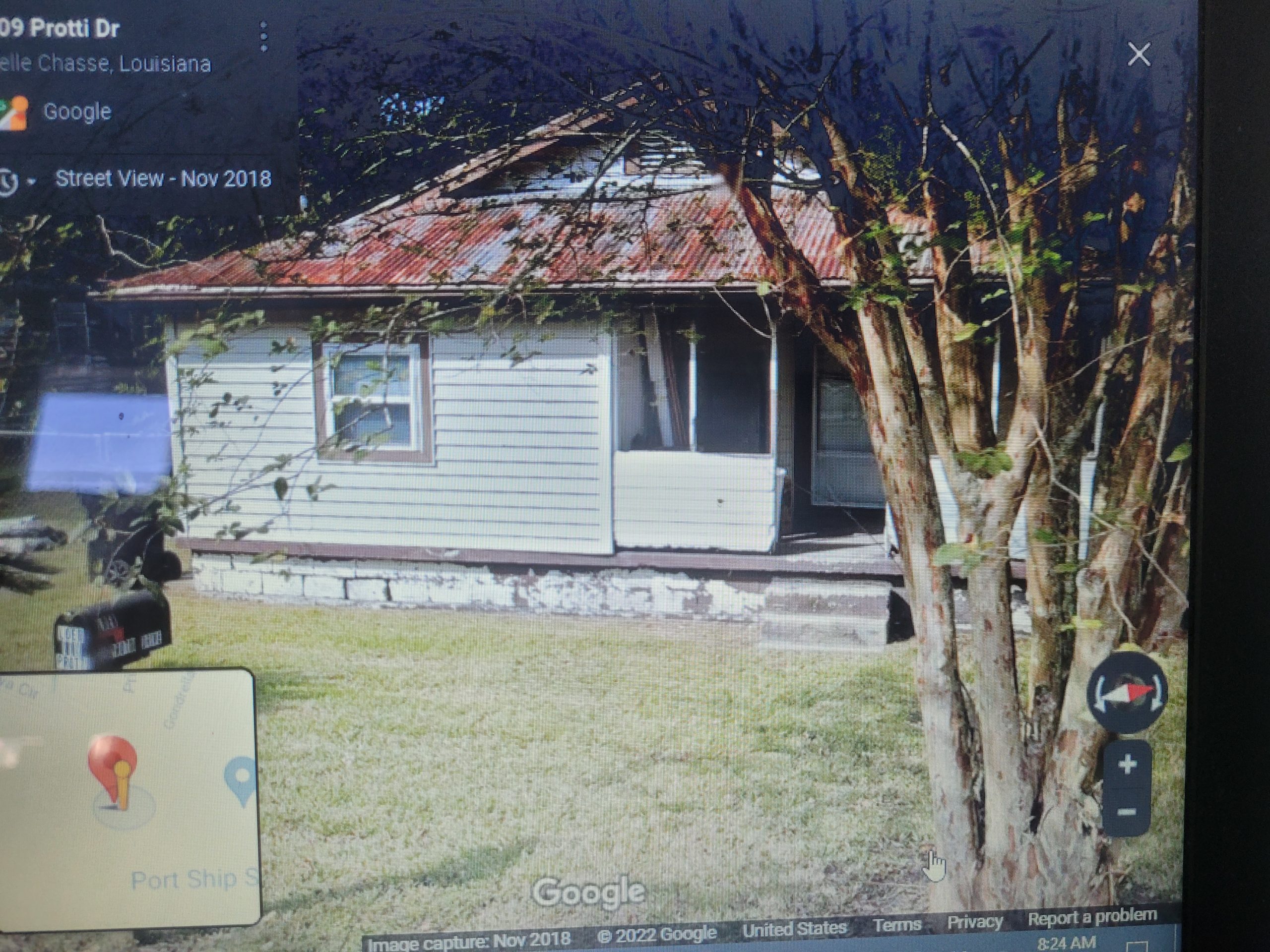Would it surprise you to learn that two children of international film and TV sensation Sofia Vergara recently rented out a small, tin roof, rusted ramshackle house to start a new life in Belle Chasse, Louisiana?
It certainly surprised me.
You are skeptical. So were the judges of Louisiana’s Fourth Circuit Appellate Court who heard this case, as made by Ms. Vergara’s relatively unknown ex, Nick Loeb. It becomes less surprising, but not any less weird, when you learn the argument was likely a cynical attempt to exploit Louisiana’s strong pro-life legal framework relating to the unborn.
This fits a favorite theme of mine: legislators who are more interested in morality policing than in making sound policy always, always, always end up writing bad laws. It then falls to exasperated judges to clean up the mess the best they can by interpreting what the legislators must have meant, and fashion a remedy out of it.
Long story short: Nick Loeb was briefly romantically involved with Ms. Vergara, and the relationship ended in 2014. Before the relationship ended, they underwent an IVF procedure which resulted in two fertilized embryos which always were, and presumably still are, cryogenically frozen in a California lab. Ms. Vergara wished for the embryos to remain frozen indefinitely, probably due in no small part to the fact that she and Mr. Loeb were breaking up at the time. As their relationship deteriorated, Mr. Loeb wanted to have the embryos transferred to a surrogate so they could develop. He even named them: “Emma” and “Isabelle.” Ms. Vergara demurred to his demands, which led to this lawsuit in a court in Plaquemines Parish, where Mr. Loeb claimed to live.
Ms. Vergara lives in Hollywood. She is from Barranquilla, Colombia, which is a lovely city in the same hemisphere but otherwise not very close to Plaquemines Parish. Mr. Loeb’s connection to Louisiana, Plaquemines Parish in particular, is only slightly less tenuous than Ms. Vergara’s. Mr. Loeb apparently went to Tulane several years ago. They were both in Louisiana for a few months in 2014, as Ms. Vergara was filming a movie being produced in New Orleans. While they were here, Mr. Loeb expressed an interest in being a Plaquemines Parish volunteer deputy sheriff, which he half-heartedly followed up on a few times.
That was pretty much it: the full extent of their connection to the court that would decide the fate of their family.
But Mr. Loeb felt he needed more of a connection than that. So, to prepare for his attempt to bring “Emma” and “Isabelle” into the world as new residents of Plaquemines Parish, he rented the aforementioned shack in Belle Chasse, where the happy family planned to reside:
 Yeah. Although to be fair, it does say “LOEB” on the mailbox.
Yeah. Although to be fair, it does say “LOEB” on the mailbox.
Clearly, Mr. Loeb never lived in this house, or in Plaquemines Parish. Giving the court enough of an excuse to find that he did, and then landing a receptive judge to score a win for the pro-life movement, was seemingly the plan. I don’t purport to be familiar with Mr. Loeb’s politics, but he was the writer and director of a low budget movie called “Roe v. Wade” starring conservative stalwart Jon Voight and Fox News personality Stacy Dash. So if you guess that this was a personal and moral crusade, or maybe a stunt to burnish his pro-life bona fides in the lucrative realm of conservative media, you may not be too far from the mark.
Mr. Loeb was laughably transparent that his attempt to forum shop was a sham. He didn’t live in that house for a single day. The evidence showed he split his time between Hollywood, New York, Florida, and Spain. What’s more, his lawyers, handlers and assistants in this scheme flat out admitted in emails, text messages and even in deposition testimony that they were engaged in a plan to forum shop for a favorable judge.
The court saw this for the goofy stunt that it was, and it failed. It characterized all this with words like “disreputable” and “mockery” and “abhorrent” (note: if you are a lawyer, and a judge uses words to this effect to describe your argument, you’ve lost so badly that hiding behind the lectern to avoid thrown gavels is probably prudent).
Nevertheless, Mr. Loeb soldiered on. His argument was that because of Louisiana’s Human Embryo Statutes, the court could take cognizance of the rights of the embryos as “children” under the Uniform Child Custody Jurisdiction and Enforcement Act, or UCCJEA (PDF warning). Both Louisiana and California, along with forty-seven other states, and several U.S. territories, have adopted the UCCJEA to ensure that a parent cannot move a child from the reach of the court in order to escape child custody or visitation orders.
The UCCJEA is an incredibly useful tool for an all too common problem in custody disputes. I’ve certainly had cases involving a disgruntled parent picking up the children from school and intending to leave the state or even the country forever, in order to get the final word on child custody without bothering with the courts. Having the broad reach of the UCCJEA at my disposal was indispensable in finding resolution for clients who lacked any alternative.
Mr. Loeb cynically and misguidedly attempted to pair this enforcement power with Louisiana’s personhood laws related to IVF embryos to claim custodial rights over “Emma” and Isabelle,” obtain an order to have them brought to term, and establish his custody of them.
This brings us to the heart of the problem. The Human Embryo Statutes are a patchwork, internally inconsistent mess; ripe for exploitation by the unscrupulous.
The Human Embryo Statutes were passed in 1986, when Louisiana needed to get laws on the books to keep up with the march of technological advancement in the realm of IVF. Because this need ran up against the resistance of the ever-powerful Louisiana pro-life movement, the result was a poorly conceived mess. In order to accommodate the cold logic of science, the existing legal framework of what it is to be a person, and the sincere belief of the majority of Louisianans that unborn embryos are fully realized people entitled to legal protection, the statute found a compromise by classifying IVF embryos as “juridical persons” – like corporations – until implantation. Once implanted, their natural rights take hold and govern like anyone else.
If this sounds weird, shoddy, and full of logical holes, that’s because it is. Frankly, I am amazed our Human Embryo laws have survived, unchanged and exactly as they were originally written, for thirty-six years now. As far as Louisiana is concerned, frozen embryos are the same as babies, so it was necessary to prevent their destruction by the lab or by parents who changed their minds. But the legislature realized that just designating IVF embryos as natural persons would lead to absurdities, such as frozen embryos having inheritance rights.
Or, bringing it back to this case, that they could file lawsuits, establish residence in a shack in Belle Chasse, and become the subject of celebrity interstate custody disputes.
I think the legislature’s solution was probably too clever for its own good, and so did the court. The court observed that the Human Embryo Statutes clearly state both that the IVF ovum is a “juridical person” and that it is a “biological human being.” This is obviously nonsense that compelled the court to look to other states for guidance on whether any of them treat frozen embryos as “children” for the purpose of custody disputes, which of course they do not.
It doesn’t say anything good at all when the courts of your state find your law so unintelligible, they have no choice but to search out a lifeline in other states that were not so agenda-driven in passing their own versions of the same law.
Fortunately, the court found its lifeline in laws and rulings out of Colorado, Illinois and Texas that observe the UCCJEA, but specifically do not recognize its application to unborn children. It took some work, no doubt quite a bit of painstaking research, and about forty pages to explain. But the court had what it needed to maintain Ms. Vergara’s objections to the suit, and it was dismissed.
Ms. Vergara is still living the Hollywood lifestyle, but now is happily married to some other guy.
Who knows where Nick Loeb is.
“Emma” and “Isabelle” remain in cryogenic deep freeze; an eternal monument, I suppose, to what might have been.
When there really aren’t any consequences beyond stressed out judges’ clerks and lawyers who get rich on nonsense arguments, it can be fun to read about and discuss the bizarre unintended consequences of a legislature on a misguided crusade. But we shouldn’t lose sight of the fact that using the law to drive a moral agenda impacts everyday Louisianans who can get inadvertently caught up through no fault of their own. They do not have the resources of Hollywood at their backs, so they need a good Louisiana lawyer.
If you find yourself in a tawdry romantic drama with one of Hollywood’s most glamorous stars, you need someone who knows your rights, and has your back.



